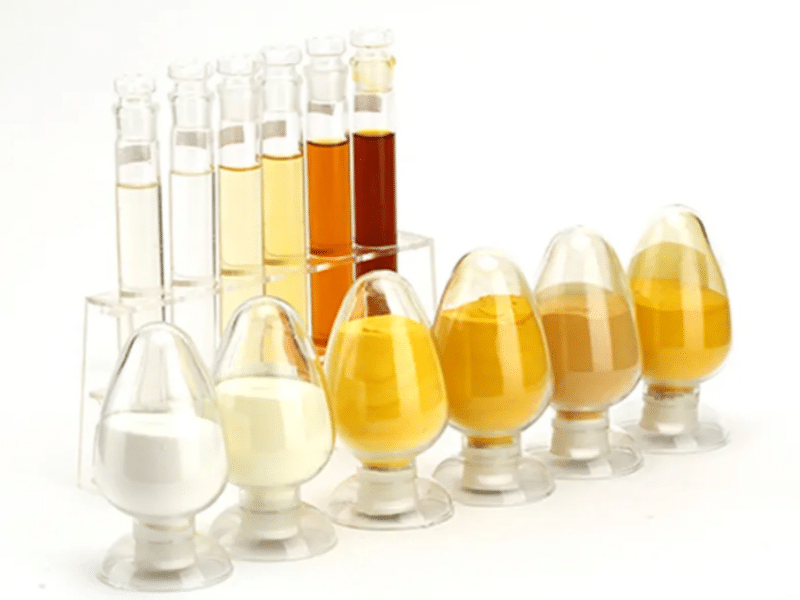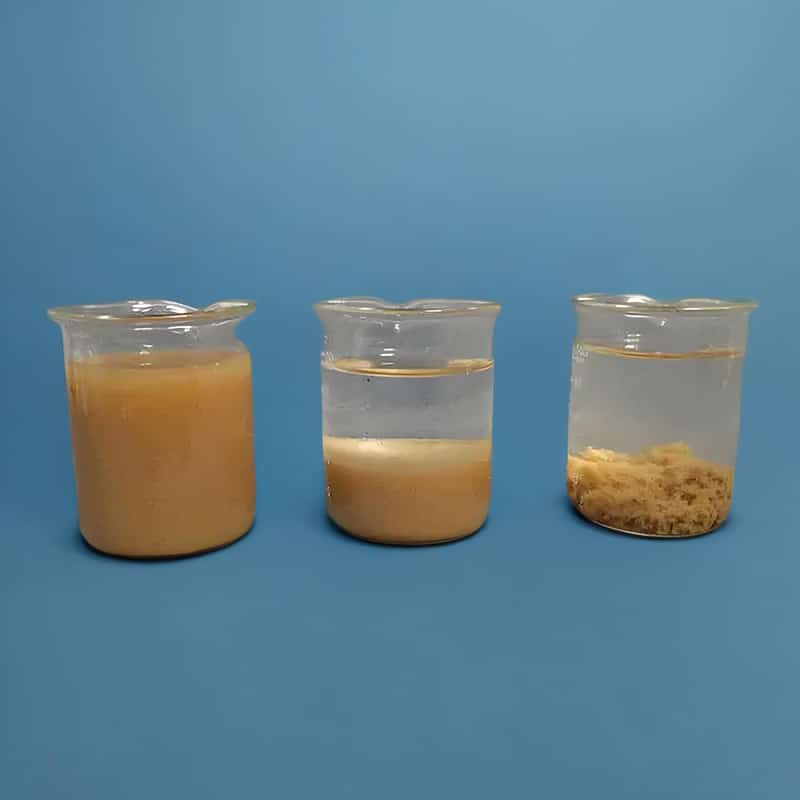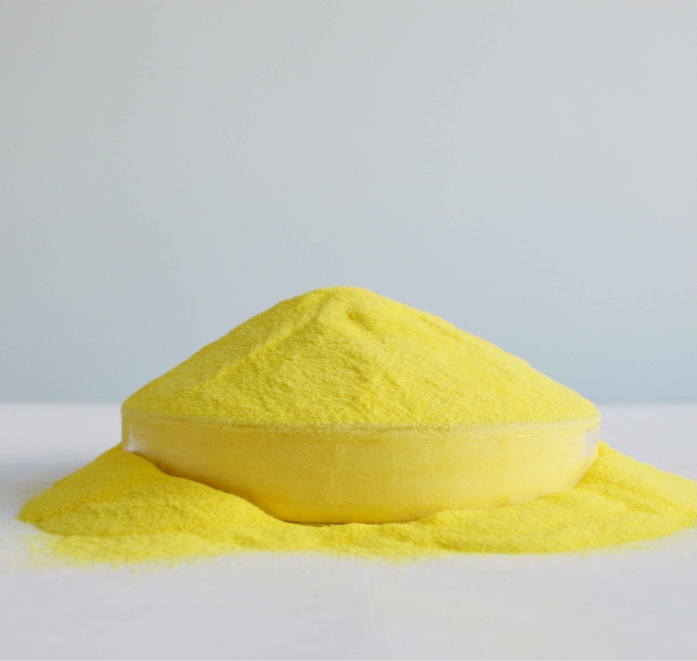
Contents
- 1 Introduction:
- 2 What is Poly Aluminum Chloride (PAC)?
- 3 Mechanism of Action:
- 4 Properties of PAC:
- 5 Applications of PAC:
- 6 Significance of PAC:
- 7 Safety Considerations:
- 8 Conclusion:
- 9 FAQs:
- 9.0.1 Is PAC safe for drinking water treatment?
- 9.0.2 Can PAC be used in industrial processes other than water treatment?
- 9.0.3 How does PAC compare to other coagulants?
- 9.0.4 Is PAC suitable for both small and large-scale water treatment facilities?
- 9.0.5 How long can PAC be stored without losing its effectiveness?
- 10 How WaterCareChem Can Help You With Your Water Treatment Chemical Needs?
- 11 Water Treatment Simplified: How WaterCareChem Can Be Your One-Stop Shop
Introduction:
In the realm of water treatment, various chemicals play a crucial role in ensuring the provision of clean and safe water. One such chemical is Poly Aluminum Chloride, commonly known as PAC. In this blog post, we will introduce what PAC is, its properties, applications, and its significance in water treatment processes.
What is Poly Aluminum Chloride (PAC)?

Poly Aluminum Chloride (PAC) is a chemical compound that is used in various industrial and municipal applications. It is a coagulant and flocculant, which means it is used to remove impurities from water and wastewater. PAC is known for its high efficiency in treating water and has become a popular choice for water treatment facilities around the world.
One of the key benefits of using PAC is its ability to effectively remove suspended solids, organic matter, and other contaminants from water. This makes it an ideal choice for treating both industrial and municipal wastewater, as well as for purifying drinking water. In addition, PAC is also effective in reducing the levels of certain heavy metals and other pollutants in water, making it an important tool in environmental protection efforts.
PAC is available in both liquid and powder forms, and can be easily mixed with water to form a solution for treatment. Its versatility and ease of use make it a preferred choice for many water treatment professionals. In addition, PAC is known for its stability and long shelf life, which means it can be stored for extended periods without losing its effectiveness.
Furthermore, PAC is known for its relatively low dosage requirements and fast reaction times, making it a cost-effective and efficient option for water treatment. Its stability and long shelf life also contribute to its appeal as a treatment option.

Mechanism of Action:
PAC works through a process called coagulation. When PAC is added to water, it breaks down into positively charged ions that attract and bind to negatively charged particles, such as suspended solids and bacteria. These collisions form larger flocs (clumps) that are heavier and settle out of the water more rapidly. This process clarifies the water and makes it easier to remove the impurities through filtration or sedimentation.
Properties of PAC:
- High coagulation efficiency: PAC has excellent coagulation properties, enabling the rapid aggregation and precipitation of suspended particles and turbidity, thereby improving water clarity.
- Broad applicability: PAC finds application in various water treatment scenarios, including municipal water treatment, wastewater treatment, industrial effluent treatment, and more.
- Low dosage requirements: Compared to traditional coagulants, PAC requires lower dosage levels, making it cost-effective and environmentally friendly.
- Stability and tolerance to water conditions: PAC exhibits good stability and resistance to contamination across different water qualities and treatment conditions, making it suitable for complex water treatment environments.
Applications of PAC:
- Municipal water treatment: PAC is commonly used in the treatment of municipal water supplies to remove turbidity, color, and organic matter, thus enhancing water quality.
- Wastewater treatment: In wastewater treatment, PAC effectively coagulates and precipitates suspended solids, oils, and heavy metal ions, improving the efficiency of wastewater treatment processes.
- Industrial effluent treatment: PAC finds extensive use in the treatment of industrial effluents, aiding in the removal of organic matter, suspended particles, and metal ions, thereby meeting environmental discharge standards.
Significance of PAC:
- Efficient purification capabilities: PAC facilitates rapid and efficient water purification, ensuring the provision of clean and hygienic water.
- Cost-effectiveness and environmental friendliness: With lower dosage requirements, PAC helps reduce costs and prevents secondary pollution of water quality.
- Stability and reliability: PAC demonstrates consistent purification performance across varying water qualities and treatment conditions, providing reliability in water treatment processes.
Safety Considerations:
PAC is a slightly acidic material and can irritate the skin and eyes. It’s important to wear gloves, eye protection, and appropriate clothing when handling PAC.
Conclusion:
Poly Aluminum Chloride (PAC) plays a significant role in water treatment by effectively removing impurities, clarifying water, and improving its overall quality. Its high coagulation efficiency, broad applicability, and low dosage requirements make it a valuable asset in the pursuit of clean and safe water. PAC’s stability, cost-effectiveness, and reliability further contribute to its importance in water treatment processes. By harnessing the power of PAC, we continue to advance our efforts in ensuring access to clean and safe water for communities and industries worldwide.
FAQs:
-
Is PAC safe for drinking water treatment?
Yes, PAC is safe for drinking water treatment. It effectively removes impurities and contaminants, enhancing water quality.
-
Can PAC be used in industrial processes other than water treatment?
Yes, PAC finds applications in various industrial processes beyond water treatment. It aids in the removal of impurities and facilitates efficient operations.
-
How does PAC compare to other coagulants?
PAC offers several advantages over traditional coagulants, including its low dosage requirements, cost-effectiveness, and broad applicability.
-
Is PAC suitable for both small and large-scale water treatment facilities?
Yes, PAC is suitable for water treatment facilities of all sizes. Its versatility and ease of use make it adaptable to different treatment capacities.
-
How long can PAC be stored without losing its effectiveness?
PAC has excellent stability and a long shelf life. It can be stored for extended periods without losing its efficacy, making it a reliable choice for water treatment professionals.
How WaterCareChem Can Help You With Your Water Treatment Chemical Needs?
Water Treatment Simplified: How WaterCareChem Can Be Your One-Stop Shop
Water treatment shouldn’t be a headache. At WaterCareChem, we’re your trusted partner for all your water treatment chemical needs. We offer a comprehensive range of high-quality chemicals, from essential products to advanced solutions for specific applications.
Our team of water treatment specialists has the knowledge and experience to help you choose the right chemicals for your unique needs. We can answer your questions, provide technical support, and ensure you get the best possible results.
Don’t just settle for any water treatment chemical supplier. WaterCareChem is committed to providing exceptional customer service, competitive pricing, and reliable delivery so you can focus on what matters most – achieving optimal water quality.
- Extensive product range: Cater to a wide range of water treatment needs.
- Expert knowledge: Provide technical support and guidance.
- High-quality products: Ensure optimal water treatment results.
- Competitive pricing: Offer cost-effective solutions.
- Reliable delivery: Guarantee timely arrival of chemicals.
- Exceptional customer service: Prioritize customer satisfaction.
Contact WaterCareChem today to Request a Quote, and see how we can be a valuable partner for your water treatment chemical needs.
